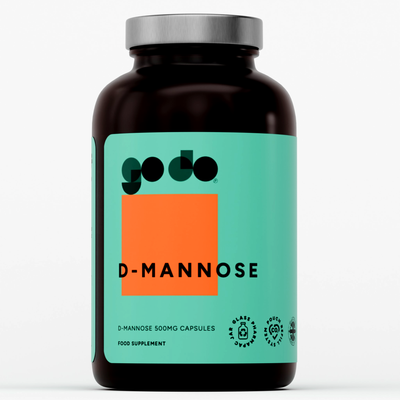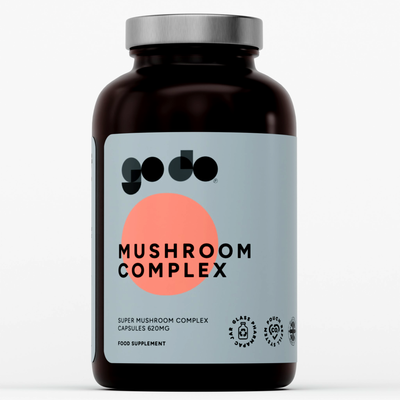If you're experiencing dry, itchy, and bumpy patches of skin, you may be wondering what's going on with your skin. Eczema, a common skin condition, affects millions of people worldwide, and understanding what it is and what triggers it is crucial to managing its symptoms.
As you navigate the complexities of eczema, it's imperative to know that it's not contagious, and while there's no cure, there are treatments available to help you regain control over your skin. In this article, we'll investigate into the world of eczema, exploring its causes, types, and triggers, so you can better understand what's happening to your skin and take steps towards finding relief.

What is Eczema (Atopic Dermatitis)?
The term "eczema" refers to a group of skin conditions that cause dry, itchy, and inflamed skin. It's a common condition that affects millions of people worldwide, and it's not contagious.
Definition and Overview
For those who suffer from eczema, it’s imperative to understand what it is and how it affects your skin barrier. Eczema is a condition that weakens your skin’s barrier function and involves an overactive immune system response, making it more susceptible to dryness, itchiness, and inflammation. It’s a type of dermatitis, which is a broader category of skin conditions that cause inflammation.
Types of Eczema
There are several types of eczema, each with unique triggers and characteristics. Some of the most common types include:
-
Atopic dermatitis
-
Contact dermatitis
-
Dyshidrotic eczema
-
Neurodermatitis
-
Nummular eczema
-
Seborrheic dermatitis
The good news is that it's possible to have more than one type of eczema at the same time. Understanding the different types can help you better manage your symptoms and develop an effective treatment plan.
Type of Eczema Description Atopic dermatitis A chronic condition that characterized by skin infections and by dry, itchy, and inflamed skin. Contact dermatitis A skin reaction that occurs when you come into contact with an allergen, or irritant. Dyshidrotic eczema A type of eczema that causes small, itchy blisters on the hands and feet. Neurodermatitis A condition characterized by chronic itching, scratching, and skin thickening. Nummular eczema A type of eczema that causes coin-shaped patches on the skin.
Overview of eczema types: Each type of eczema has unique triggers and characteristics. Understanding the different types can help you better manage your symptoms and develop an effective treatment plan. The table above provides a brief overview of some of the most common types of eczema.
An important thing to remember is that eczema is a complex condition, and what works for one person may not work for another. By understanding the different types of eczema, you can take the first step towards managing your symptoms and improving your quality of life.

-
Atopic dermatitis is a chronic condition characterized by dry, itchy, and inflamed skin.
-
Contact dermatitis is a skin reaction that occurs when you come into contact with an allergen, or irritant.
-
Dyshidrotic eczema is a type of eczema that causes small, itchy blisters on the hands and feet.
-
Neurodermatitis is a condition characterized by chronic itching, scratching, and skin thickening.
-
The last sentence should start with "The", The key to managing eczema is to identify your triggers and develop a treatment plan that works for you.
Who Does Eczema Affect?
It is necessary to understand that eczema can affect anyone, regardless of age, gender, or ethnicity. The condition is prevalent, and its impact can be significant on an individual's quality of life.
Age and Family History
To better comprehend the scope of eczema, consider that it can affect people of all ages, from infants to adults. If you have a family history of eczema, dermatitis, allergies, hay fever, or asthma, you may be more likely to develop this condition.
Associated Conditions
To further understand the complexity of eczema, it is crucial to recognize that it often coexists with other conditions. If you have eczema, you may also experience other health issues, such as asthma, allergies, or hay fever.
With these associated conditions, it is necessary to work with your healthcare provider to manage your overall health and develop a comprehensive treatment plan atopic eczema. By addressing these interconnected conditions, you can better control your eczema symptoms and improve your quality of life.
What is Eczema and What Triggers It: Key Takeaways
-
Eczema is a chronic skin condition that causes dry, itchy, and bumpy patches of skin, and it's not contagious.
-
Triggers of eczema include environmental factors (e.g., dry weather, fabrics, makeup, smoke, and pollutants), genetic predisposition, and emotional triggers (e.g., stress, anxiety, and depression).
-
Managing eczema symptoms involves identifying and avoiding triggers, using gentle skin care products, applying topical medications, and taking oral medications as prescribed by a healthcare provider.
How Common is Eczema?
To understand the prevalence of adult eczema further, it's imperative to look at the numbers. Eczema is a common condition that affects millions of people worldwide.
Prevalence in the US
An estimated 31 million Americans have eczema, making it a widespread condition in the United States. This translates to about 10% of the population.
Infants and Children
For many children, eczema is a common condition that can appear in the first few months of life. In fact, 10% to 20% of infants develop eczema, although nearly half of them outgrow the condition or experience significant improvement as they get older.
Infants with eczema often experience symptoms on their face, scalp, and torso. As they grow, the symptoms may shift to other areas, such as the elbows, knees, and ankles. If you're a parent of an infant with eczema, it's crucial to work closely with your healthcare provider to develop a treatment plan that addresses your child's unique needs.
What Causes Eczema to Start?
After understanding what eczema is and its symptoms, it's crucial to explore what causes this condition to start in the first place. While the exact cause of eczema is still unknown, research has identified several factors that contribute to its development.
Environmental Triggers
Eczema often begins when you come into contact with an environmental trigger that disrupts your skin's natural barrier function. This can be something as simple as soaps, detergents, or fragrances that strip your skin of its natural oils, leading to dryness and itchiness.
Genetic Factors
If you have a family history of eczema, allergies, or asthma, you may be more likely to develop eczema. Genetic mutations can affect your skin’s barrier function, making it more susceptible to irritation and inflammation. Genetic mutations can also affect the immune system, leading to an overactive response that contributes to eczema symptoms. You may also be more prone to developing eczema if you have a history of:
-
Allergies
-
Asthma
-
Dermatitis
-
Hay fever
Perceiving these genetic risk factors that can help you take proactive steps to manage your eczema symptoms and reduce the risk of flare-ups.
Plus, research has shown that certain genetic mutations can affect the production of filaggrin, a protein that plays a crucial role in maintaining the skin’s barrier function. This can lead to dry, itchy skin and increase the risk of developing eczema.
-
Defects in the filaggrin gene can impair the skin’s natural barrier function
-
This can lead to increased water loss and inflammation
-
Perceiving these genetic factors can help you take proactive steps to manage your eczema symptoms and reduce the risk of flare-ups.
Symptoms and Causes
Once again, eczema is a complex condition with various symptoms and causes. Understanding what triggers your eczema and how it affects your skin is crucial in managing the condition.

Common Symptoms
On the surface, eczema symptoms can appear as dry, itchy, and inflamed skin. You may experience skin rash, bumps, thick, leathery patches, flaky, scaly, or crusty skin, and swelling.
What Does an Eczema Rash Look Like?
Look for a rash that can appear differently on darker skin tones each person, depending on their skin tone. If you have a dark skin tone, an eczema rash can be purple, brown, or gray. If you have a light skin tone, an eczema rash can look pink, red, or purple.
This variation in appearance is important to keep in mind when diagnosing eczema, as it may not always fit the typical description of a red, itchy rash.
Where Do Symptoms Appear?
Like a puzzle, eczema symptoms can show up anywhere on your skin. The most common places where you'll notice symptoms of eczema include your hands, neck, elbows, ankles, knees, feet, face, scaly skin, especially cheeks, and in or around ears and lips.
Where symptoms appear can vary from person to person, and it's important to monitor your skin regularly to catch any changes early on.
Does Eczema Hurt?
Symptoms of eczema don't usually cause pain. If you scratch your skin, you could break the surface of your skin and create a sore, which could be painful. Some types of eczema, more like allergic contact dermatitis, cause a burning sensation and discomfort.
Plus, the emotional toll of living with severe eczema, should not be underestimated. The constant itching, scratching, and discomfort can lead to feelings of frustration, anxiety, and depression.
What Triggers Eczema to Flare Up?
Many people with eczema experience flare-ups due to various triggers. Identifying and avoiding these triggers can help reduce the frequency and severity of eczema flares and symptoms.
Common Triggers
Eczema triggers can vary from person to person, but common ones include dry weather, fabrics or clothing materials, makeup or skin care products, smoke and pollutants, soaps and detergents, stress, and touching something you're allergic to.
Emotional Triggers
Flare-ups can also be triggered by emotional factors such as high levels of stress, anxiety, or depression. High levels of stress and anxiety can impact your immune system, potentially leading to eczema flare-ups. If you experience emotional distress, your skin may react by becoming more sensitive and prone to eczema symptoms.
To better manage emotional triggers, it’s vital to prioritize your mental health and well-being. This may involve practicing stress-reducing techniques like meditation, yoga, or deep breathing exercises. Additionally, seeking support from friends, family, or a mental health professional can help you cope with emotional challenges and reduce the likelihood of eczema flare-ups.
Food Allergies and Eczema Flares
Food allergies can also trigger eczema symptoms in some individuals. Common allergenic foods include peanuts, dairy, eggs, and others. If you suspect that certain foods are exacerbating your eczema, pay attention to how your skin reacts after consuming them.
Eczema and food allergies are closely linked, and identifying specific triggers can help you make informed dietary choices. By avoiding or reducing consumption of allergenic foods, you may experience fewer eczema flare-ups and improved overall skin health.
Diagnosis and Tests
Keep in mind that diagnosing eczema can be a process of elimination, as the symptoms can be similar to other skin conditions. Your healthcare provider will work with you to determine the best course of action to diagnose and treat your eczema.
Physical Exam and Diagnosis
Determining the diagnosis of eczema typically begins with a physical exam, where your healthcare provider will closely examine your skin to look for signs of dryness, itchiness, and inflammation. They may also ask you questions about your symptoms, medical history, and lifestyle to help identify potential triggers.
Ruling Out Other Conditions
Tests may be necessary to rule out other conditions that could be causing your symptoms. These tests might include allergy tests, blood tests to check for underlying conditions, or a skin biopsy to distinguish one type of dermatitis from another.
Plus, your healthcare provider may want to rule out other conditions that could be causing your symptoms, such as psoriasis, ringworm, or scabies. By eliminating other possibilities, they can make a more accurate diagnosis of eczema.
Questions Your Healthcare Provider May Ask
One of the key ways your healthcare provider will diagnose eczema is by asking you questions about your symptoms and medical history. They may ask about the location and severity of your symptoms, what triggers or worsens them, and how long you've been experiencing them.
Provider may also ask about your family medical history, as eczema can be inherited. They may also ask about your lifestyle, including your diet, stress levels, and environmental exposures, to identify potential triggers.
Management and Treatment
Now that we've discussed the causes and symptoms of eczema, let's investigate how to manage and treat this condition.
Getting Rid of Eczema
For people with eczema, getting rid of the condition often involves a combination of self-care techniques, lifestyle changes, and medical treatments. Your treatment plan will depend on the severity of your symptoms, your age, and the type of eczema you have.
Treating Childhood Eczema

An important part of treating childhood eczema is to keep your child's skin moisturized. This can involve applying moisturizers several times a day, especially after baths or showers.
Plus, there are several other ways to help your child manage their eczema symptoms. For example, you can dress them in cotton clothing, keep the room temperature consistent, and help them avoid scratching or rubbing their skin.
Moisturizers and Skin Care
One of the most important steps in managing eczema is to keep your skin moisturized. This can involve using gentle, fragrance-free moisturizers that are designed for sensitive skin.
The key is to find a moisturizer that works for you and to use it consistently. You may need to try several different products before you find one that helps to soothe and calm your irritated skin.
Managing Eczema Symptoms
Eczema symptoms can be frustrating and uncomfortable, but there are several ways to manage them. Some treatments, such as biologics, target specific proteins in the immune system to help alleviate eczema symptoms. For example, you can try to identify and avoid triggers that make your symptoms worse, such as certain soaps or detergents.
Another important step is to keep your skin moisturized and to use topical medications as directed by your healthcare provider. With the right treatment plan and self-care techniques, you can learn to manage your eczema symptoms and improve your quality of life.
Final Words
Presently, you have a better understanding of eczema, its triggers, and how it affects your skin. Bear in mind, eczema is a common condition that can be managed with the right treatment and self-care. By identifying and avoiding your personal triggers, using gentle skin care products, and maintaining a healthy lifestyle, you can reduce the frequency and severity of eczema flare-ups. Don't hesitate to consult with a healthcare provider if you suspect you have eczema or if your symptoms worsen over time. With patience and persistence, you can take control of your eczema and enjoy healthier, happier skin.
FAQ
Q: What is eczema?
A: Eczema is a skin condition that causes dry and itchy patches of skin. It's a common condition that isn't contagious. Symptoms of eczema can flare up if you contact an irritant or an allergen. There are treatments available to help you manage symptoms, but there isn't a cure. Eczema will weakens your skin's barrier function, which is responsible for helping your skin retain moisture and protecting your body from outside elements.
Q: What triggers eczema to flare up?
A: Eczema affects each person differently, and what causes your symptoms to flare up might not trigger someone else with the condition. Common triggers that cause eczema include: very dry skin, weather (low humidity), fabrics or clothing material, makeup or skin care products, smoke and pollutants, soaps and detergents, stress or your emotional well-being, and touching something you're allergic to. Identifying environmental triggers and avoiding them can help reduce your risk of an eczema flare-up.
Q: How do I manage my eczema symptoms?
A: Treating and managing eczema can be difficult if the cause is something you can't control, like genetics. Fortunately, you may have some influence over your environment and stress levels. Do your best to figure out what triggers or worsens eczema contagious and your symptoms. Use gentle or sensitive skin moisturizers throughout the day when you have dry skin. Apply topical medications to your skin as advised by your provider, like topical steroids. Take oral medications like anti-inflammatory medicines, antihistamines, or corticosteroids to reduce itchiness and swelling. Avoid triggers that cause symptoms of eczema to flare up.




































































